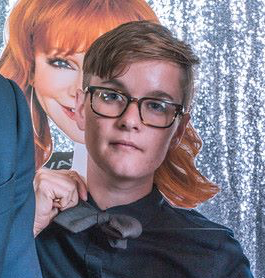Sara is a doctoral candidate in the History and Sociology of Science at the University of Pennsylvania. Her dissertation, Monsters in the Cabinet, compares the anatomical collections of surgeons Guillaume Dupuytren (1777-1835) in Paris and Willem Vrolik (1801-1863) in Amsterdam: particularly their collections of ‘monstrous’ bodies. She examines how Dupuytren’s and Vrolik’s collections of monstrous bodies-- the conjoined, the dwarfed, the limbless, and other curious forms-- encapsulated two competing philosophies of nature debated by comparative anatomists in the early nineteenth century. From there, she traces the influence of elite naturalist discourse and medical expertise on the development of state policies affecting the lives of disabled individuals in France and in the Netherlands.
Sara Ray
Wolf Humanities Center Doctoral Fellow
2017—2018 Forum on Afterlives
Sara Ray
Doctoral candidate, History and Sociology of Science
Monsters in the Cabinet: Human Anatomical Collecting and the Question of Organic Change, 1780-1850
Monsters in the Cabinet explores the material, philosophical, and political afterlives of the human bodies (and their parts) populating the museums of early nineteenth century surgeons. I compare two contemporaneous surgeons–one in Paris, one in Amsterdam–who collected ‘monstrous’ human bodies with the belief that that these bodies provided unique insights into the secret workings of nature. Yet where one saw monsters as nature’s errors, the other saw them as nature’s creativity. Taking cues from disability studies, I explore how these different philosophical interpretations of monstrosity informed the development of state policies affecting living people with non-normative bodies. My work connects the rise of professional surgery, elite naturalist discourse, and marginalized lived experience by examining the afterlives of bodies entombed within anatomical displays.



